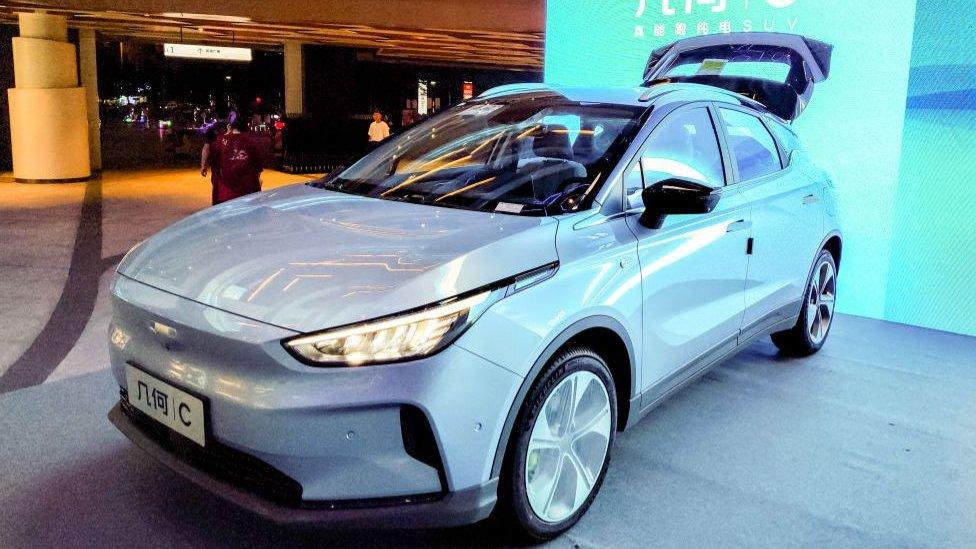China's Baidu and Geely partner up for smart cars
- Published

A Geely electric car at the Shanghai Auto show.
China’s search engine Baidu has announced it will partner with carmaker Geely to make smart electric vehicles (EVs).
Baidu will provide “intelligent driving capabilities”, while Geely will offer design and manufacturing expertise.
Geely is one of China’s largest carmakers, and also owns Volvo and a stake in Mercedes-Benz owner Daimler.
The two companies will be competing not just with Elon Musk's Tesla, but also with several Chinese competitors.
“We believe that by combining Baidu's expertise in smart transportation, connected vehicles and autonomous driving with Geely's expertise as a leading automobile and EV manufacturer, the new partnership will pave the way for future passenger vehicles," said Robin Li, co-founder and chief executive of Baidu.
Baidu established its autonomous driving unit Apollo in 2017, which mainly supplies technology powered by artificial intelligence and works with a number of international and Chinese carmakers
China is the world’s leading market for electric vehicles.
According to the International Energy Agency, there were 7.2 million electric cars on the road globally by 2019, with 47% of them in China.
Data provider S&P Platts estimates that “new energy vehicles” will account for 20% of total new car sales in China by 2025.
“China has become the world's largest market for EVs, and we are seeing EV consumers demanding next generation vehicles to be more intelligent," Mr Li said.
Will the UK be ready for a 2030 ban on sales of petrol and diesel cars?
Fierce competition
Baidu and Geely are likely to face strong competition, with carmakers and tech giants globally trying to develop smart cars.
Internet giants including Tencent, Amazon and Alphabet have all developed auto-related technology or invested in smart-car startups in recent years.
China’s e-commerce giant Alibaba has formed an EV joint venture with Geely’s competitor SAIC.
Chinese ride-hailing app Didi Chuxing has partnered with automaker BYD to make electric vehicles specifically designed for ride hailing services.
Hyundai and Apple
The announcement follows reports of a possible electric car tie-up with Apple and Hyundai.
Shares of the South Korean car company surged by more than 20% on Friday after it initially said it was in the "early stage" of talks with the iPhone maker about a possible electric car partnership.
But hours later it backtracked and said it was talking with a number of potential partners without naming Apple.
A report in Korea IT News on Sunday said the two companies planned to sign a deal by March and start production around 2024.